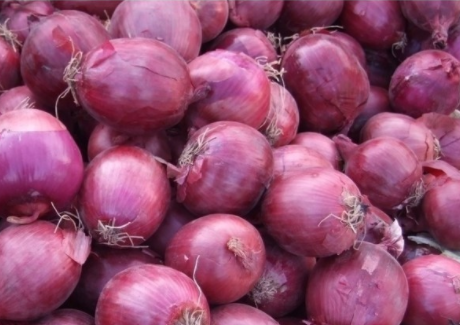食品伙伴网导读,据美国营养成分网8月9日的消息称,一项新的人体试验数据表明,每日补充类胡萝卜素虾青素可改善轻度高脂血症患者的高密度脂蛋白浓度。

先前有过动物实验证明了虾青素有利于增加高密度脂蛋白浓度降低甘油三酯浓度的功能,但这一性质尚未被人体试验所证明。本研究由来自日本Jikei大学Kashiwa医院及富士化工的研究者,使用富士公司市售的虾青素,对61名非肥胖型的均具有轻度甘油三酯水平偏高体质的受试人员进行了调查。这一研究结果发表在动脉粥样硬化(Atherosclerosis)期刊上。
根据Frost&Sullivan的数据,到2015年,虾青素的全球市场将价值大约2亿美元,其中大部分是用作色素,如加强鲑鱼的粉红色。现有的研究也表明,虾青素主要是对眼睛和皮肤的健康有益,同时也有利于关节和中枢神经的健康,据说其抗氧化能力是维生素E的500倍。大部分虾青素是来自于藻类,夏威夷红藻,并且在一些常见的食用鱼类及甲壳类动物中也很常见,这就是它们身上显示出粉红色的原因。
研究者把受试者随机分为四组,每组每日摄入不同量的虾青素(0、6、12、18mg),进行了12周的研究。在研究结束时,最高摄入剂量的受试者血液中甘油三酯说平减少了24-25%。此外,中度摄入剂量(每天6mg及12mg)的受试者血液中的高密度脂蛋白的则分别上升了10%和15%。在摄入量高的2组中,脂联素水平也有了显著的上升,12mg的组别是上升超过了20%,而18mg的则上升了15-20%。
研究人员称,目前的研究并未对其具体的机制进行探讨,而且这些也需要大量的临床试验来确认这种虾青素的益处。
原文报道:Astaxanthin’s heart benefits get human data support
By Stephen Daniells, 09-Aug-2010
Related topics: Research, Antioxidants, carotenoids, Cardiovascular health
Daily supplements of the carotenoid astaxanthin may improve HDL ‘good’ cholesterol levels in people with mildly abnormal blood lipid levels, suggests new data from a human trial.
Doses up to 18 milligrams per day for 12 weeks improved blood levels of HDL cholesterol, as well as adiponectin concentrations, a protein hormone linked to various metabolic processes, according to findings published in Atherosclerosis.
Researchers from Jikei University Kashiwa Hospital in Japan and Fuji Chemical Industry used Fuji’s commercially available AstaReal astaxanthin ingredient, and the trial involved 61 non-obese people with mildly elevated triglyceride levels.
According to the researchers, the potential benefits of astaxanthin with regards to HDL cholesterol and triglycerides have been demonstrated previously in animal studies, but supporting data from humans have been lacking.
“The present double-blind, placebo-controlled study could be the first to clearly demonstrate that the administration of astaxanthin at doses of 12 and 18 mg/day significantly decreased triglyceride and increased HDL-cholesterol and adiponectin in humans,” wrote the researchers, led by Jikei University’s Hiroshi Yoshida.
A rosy future for the pink pigment?
The global astaxanthin market is estimated to be worth about $200 million by 2015, most of which is used as a pigment to enhance the pink coloration of fish such as salmon. The human uses market is growing and estimated at about $35-60 million, according to 2008 data from Frost & Sullivan.
Its main health benefits are eye and skin health although it has also been linked to joint health and central nervous system health and is said to have an antioxidant payload 500 times that of vitamin E.
Most astaxanthin is derived from the algae, Haematococcus pluvialis, which is commonly consumed by fish and crustaceans and is responsible for their pink coloration.
Study details
Yoshida and his co-workers recruited mildly hyperlipidemic subjects (serum triglyceride levels between 120 and 200 mg per dl) with an average age of 44 to participate in their placebo-controlled 12-week study. The participants were randomly assigned to receive one of four doses of astaxanthin - 0, 6, 12, or 18 milligrams per day.
At the end of the study, participants receiving the two highest doses experienced significant reductions in their triglyceride levels, of 25 and 24 percent, respectively, compared to baseline. Furthermore, people receiving 6 or 12 mg per day experienced significant increases in their HDL-cholesterol levels of 10 and 15 percent, respectively.
Additionally, adiponectin levels increased in the two highest dose groups, with increases over 20 percent in the 12 mg per day group, and between 15 and 20 percent in the 18 percent group, added the researchers.
“Although the present study does not reveal the specific underlying mechanisms, astaxanthin may be expected to successfully treat impaired lipid metabolism and prevent atherosclerosis because of its possible therapeutic increase of HDL-cholesterol and adiponectin. However, well defined in vitro studies, long-term and large-scaled clinical trials will be needed to confirm such astaxanthin benefits,” concluded the researchers.
原文地址:http://www.nutraingredients-usa.com/Research/Astaxanthin-s-heart-benefits-get-human-data-support








